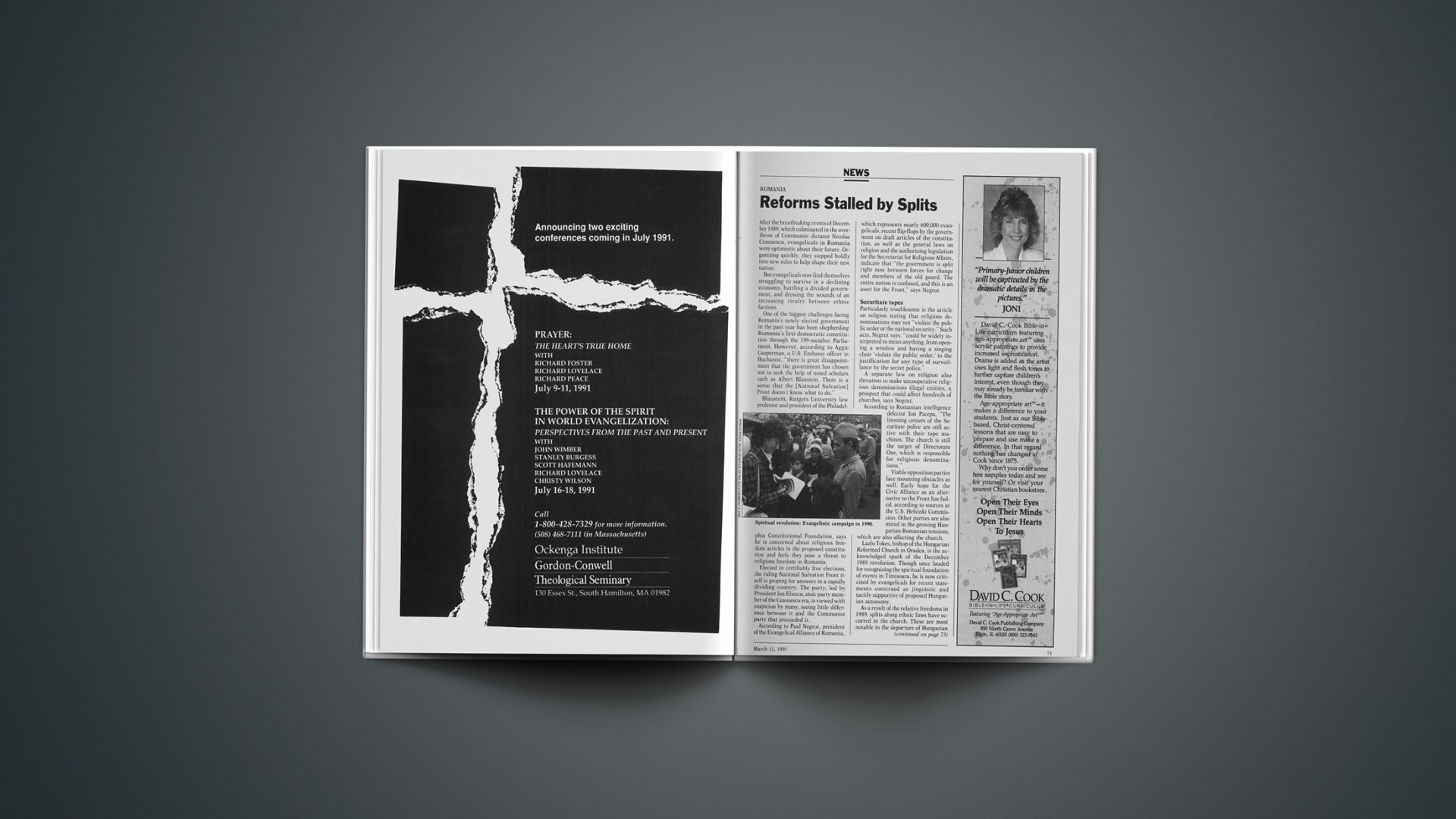Optimism surrounded last December’s peaceful elections in Haiti, where voters overwhelmingly chose Catholic priest Jean-Bertrand Aristide, 37, as their next president. Aristide’s avowed stance on the side of the poor had made him a popular figure in Haiti, long one of the poorest nations in the Western Hemisphere. The euphoria faded quickly, following an attempted coup and subsequent street violence that killed more then 40.
Given the history of instability in Haiti, church leaders and other observers have continued their cautious outlook following Aristide’s February 7 inauguration, timed to coincide with the fifth anniversary of the end of the Duvalier family dictatorship. Aristide, an advocate of liberation theology, who was expelled from the Salesian Order in 1988 on charges that he preached class struggle and revolution, apparently did little to halt the postcoup violence.
“The diplomatic community is saying that if he would have come out and said, ‘Stop,’ they would have stopped,” said Nina Shea, president of the Puebla Institute, a lay Catholic human-rights group based in Washington, D.C. “He let the violence take its course.… Aristide has to prove that he is willing to establish a rule of law—something Haiti doesn’t have.”
“I perceive that Haitian evangelicals have been basically favorable toward Aristide,” said Edwin Walker, president of the evangelical mission agency Worldteam U.S.A., and a former missionary to Haiti for 23 years. An estimated 20 percent of the 6.5 million population are Protestant evangelicals. “Haitian evangelicals, much like the masses, have been very upset by many of the abuses of the past, and they see Aristide as the candidate giving them the clearest choice for change.”
Walker added, “Church leaders who are astute theologians are concerned his [platform] is a product of liberation theology, and consequently they are wondering how radical he might be. However, many of them are taking a wait-and-see attitude. One of the things they are watching is who he names to his cabinet. Most evangelical leaders are praying for Aristide as the one who was honestly and democratically elected.”










